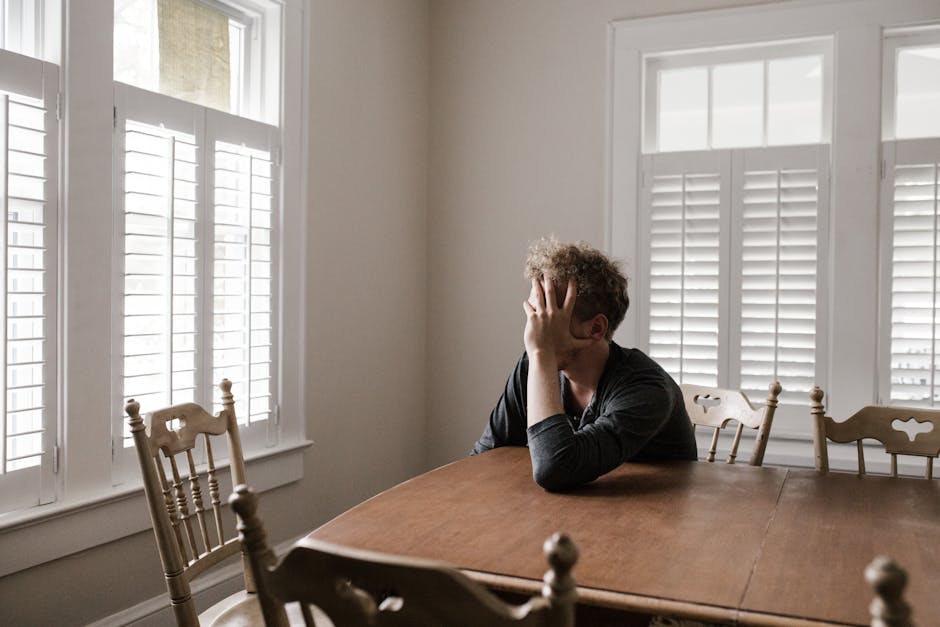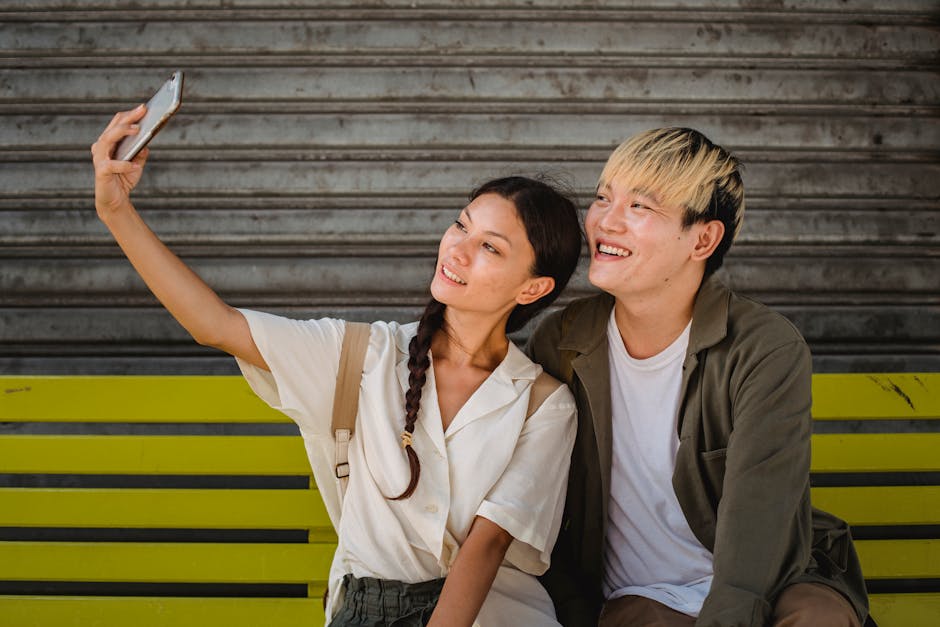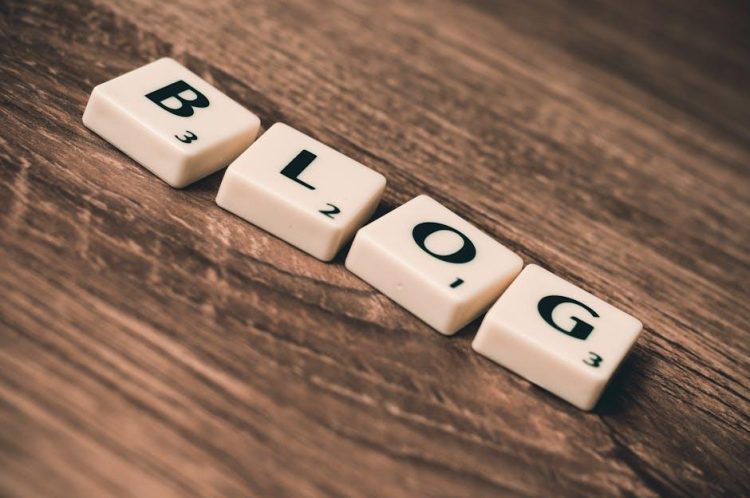In a world where Instagram likes hold more weight than actual physical weight, social media has become the ultimate battleground for human insecurities and cat memes. But behind the perfectly curated posts and witty tweets lies a darker truth - the impact of social media on mental health. So grab your avocado toast and settle in, because we’re about to dive into the tangled web of filters, FOMO, and fake friends that make up the wild world of social media and its effects on our fragile psyches.
The Rise of Social Media in Society
With the advent of social media platforms like Facebook, Twitter, and Instagram, our society has seen a significant shift in how we communicate, connect, and share information. It’s like we’ve all been given a virtual megaphone to shout our thoughts, opinions, and cat videos to the world!
One of the most fascinating aspects of this rise of social media is the way it has blurred the lines between online and offline interactions. People are now more likely to send a friend a message on Facebook than pick up the phone to call them. It’s like the virtual world has become our new reality, complete with emojis to express our every emotion.
And let’s not forget about the rise of influencers, those self-proclaimed experts on everything from makeup tutorials to fitness routines. It’s like we’ve entered a new era where our social media feeds are filled with perfectly curated images and sponsored posts. Who needs reality TV when you can just scroll through Instagram for your daily dose of drama?
But hey, despite all the selfies and status updates, social media has also brought us closer together in many ways. We can now connect with friends and family across the globe, join online communities of like-minded individuals, and even use platforms like Twitter to follow the latest news and trends. So while social media may have its downsides, let’s not overlook the many ways it has enriched our lives and connected us in ways we never thought possible.

Understanding the Connection Between Social Media Use and Mental Health
Do you find yourself scrolling through social media for hours on end, only to end up feeling more anxious and drained? Well, you’re not alone! Research has shown that there is a strong connection between social media use and mental health. Here are some key points to consider:
First off, social media can be a breeding ground for comparison. You see your friends posting about their latest vacation or promotion, and suddenly you feel like you’re not doing enough with your own life. It’s like a never-ending game of keeping up with the virtual Joneses.
Secondly, the constant flood of information on social media can be overwhelming. From news headlines to personal updates, it’s easy to get caught up in the endless stream of content. Before you know it, you’re knee-deep in a sea of memes and cat videos, wondering how you got there in the first place.
- Remember, likes and comments are not a true measure of your worth.
- It’s important to take breaks from social media to give your mind a rest.
So next time you find yourself mindlessly scrolling through your feed, take a moment to reflect on how it’s impacting your mental health. Remember, social media is just a tool – don’t let it consume you!

Negative Effects of Social Media on Mental Health
Social media can be like a never-ending black hole sucking us into a vortex of comparison, FOMO, and anxiety. It’s like walking into high school on the first day with a giant zit on your nose and everyone staring. Here are some of the negative impacts it can have on our precious mental health:
Comparisonitis: Ever find yourself scrolling through Instagram feeling like everyone else’s life is perfect except yours? It’s like an episode of the Truman show where everyone but you got the script.Procrastination Station: You sit down to work on that important project but end up spending two hours watching cat videos instead. Thanks, Facebook. Now I’ll never finish that report on time.Self-worth Struggles: The number of likes on your latest selfie can make or break your day. Who knew that tiny heart could hold so much power over your fragile ego?
Social media can also fuel unhealthy habits like cyberstalking your ex at 2 am or engaging in heated debates with strangers over politics. It’s like being stuck in a never-ending episode of Jerry Springer with no commercial breaks. Remember when life was simpler before we cared about how many followers we had or if our post got enough likes? Me neither.

Comparison of Different Social Media Platforms and Their Impact on Mental Well-being
Facebook:
Facebook, the land of endless scrolling and envy-inducing posts. With its constant stream of photos of exotic vacations, promotions, and engagement announcements, it’s no wonder people often feel inadequate when comparing their lives to others. Not to mention the drama-filled comments sections that can leave anyone feeling drained and mentally exhausted.
Instagram:
Oh, Instagram, the platform where filters make everything look perfect and curated. The pressure to maintain a flawless feed and gain likes and followers can cause anxiety and self-esteem issues. Not to mention the dreaded fear of missing out (FOMO) that comes from seeing everyone else’s highlight reel of their lives. It’s all fun and games until you realize you’ve spent hours mindlessly scrolling through photos of avocado toast and cute puppies.
Twitter:
Ah, Twitter, the home of quick quips and hot takes. The constant barrage of news and opinions can be overwhelming, leading to information overload and a never-ending cycle of outrage and debates. And let’s not forget about the trolls and cyberbullies lurking around every corner, ready to pounce on anyone who dares to share their thoughts. It’s a jungle out there in the Twittersphere.

Strategies for Maintaining a Healthy Relationship with Social Media
Now, listen up folks! We all know that social media can be a tricky beast to wrangle. But fear not, for I have some top-secret strategies to help you maintain a healthy relationship with the digital world.
First and foremost, let’s talk about setting boundaries. Our friend Mr. P has a great idea to limit your screen time. Maybe you only check your socials during your morning coffee or while you’re on the porcelain throne. Choose your moments wisely, my friends.
Next up, it’s time to tackle the comparison game. You know, that nagging feeling when your cousin’s best friend’s ex is living their best life in Bali while you’re struggling to find matching socks. Remember, folks, social media is just a highlight reel. Don’t let it trick you into thinking everyone’s life is all sunshine and rainbows.
And lastly, let’s not forget the unfollow button. It’s like a little magic wand that can make all those negative vibes disappear. If someone or something is bringing you down, don’t be afraid to hit that unfollow faster than you can say “hashtag blessed”. Your mental health will thank you later.
Addressing the Growing Concerns and Consequences of Social Media Addiction
Let’s face it – we’re all guilty of mindlessly scrolling through social media for hours on end, only to look up and realize that we’ve wasted an entire day. It’s become such a habit that we forget what life was like before we were addicted to the endless scroll of cat videos and avocado toast pictures.
But what are the consequences of our social media addiction? Here are just a few:
- Decreased productivity: Instead of getting work done, we find ourselves checking Instagram every five minutes to see if anyone liked our latest selfie.
- Relationship issues: Have you ever ignored your significant other in favor of liking photos on Facebook? Yeah, me neither.
- Poor sleep habits: Who needs a good night’s rest when you can stay up until 3 am watching TikToks?
So what can we do to address these growing concerns? It’s time to take back control of our social media habits and start living in the real world. Put down your phone, go for a walk, have an actual conversation with someone – you might be surprised at how much better you feel without the constant digital distraction.
Potential Solutions and Interventions for Promoting Positive Mental Health in the Digital Age
In this day and age, it’s easy to get caught up in the digital world and forget about our mental health. But fear not, there are plenty of solutions and interventions we can implement to promote positive mental health in the digital age!
First and foremost, **unplug**! Set aside some time each day to disconnect from your devices and connect with the world around you. Take a walk in nature, have a face-to-face conversation, or simply enjoy some quiet time without the distractions of screens and notifications.
Next, **practice mindfulness**. Take a few minutes each day to focus on the present moment and appreciate the little things in life. Whether it’s through meditation, deep breathing exercises, or simply taking a moment to pause and be grateful, mindfulness can help you reduce stress and improve your overall well-being.
Lastly, **find a hobby** that brings you joy and allows you to engage in something outside of the digital realm. Whether it’s painting, gardening, playing a musical instrument, or cooking, having a hobby can provide a much-needed break from the constant stimulation of the digital world and give you a sense of accomplishment and fulfillment.
FAQs
How does spending hours scrolling through social media affect my mental health?
Oh, dear reader, imagine this: you’re just innocently checking Instagram for five minutes before bed, and suddenly it’s 2 AM and you’re knee-deep in cat videos. Turns out, constantly comparing yourself to others and seeing highlight reels of people’s lives can really mess with your self-esteem and contribute to feelings of anxiety and depression.
Can social media actually make me feel more lonely?
Yes, indeed! While social media was supposed to connect us with friends and family, it can sometimes leave us feeling more isolated. Constantly seeing everyone else’s seemingly perfect lives can make you feel like the only one struggling, leading to feelings of loneliness and FOMO (Fear Of Missing Out).
Is there a way to use social media without negatively impacting my mental health?
Good news! You don’t have to go on a digital detox to protect your mental well-being. Setting boundaries, like limiting your screen time, curating your feed to follow accounts that inspire you, and taking breaks when you need to can all help you maintain a healthy relationship with social media.
Why do I feel anxious or stressed after using social media?
Ah, the dreaded social media-induced anxiety strikes again! Constantly being bombarded by notifications, news updates, and endless streams of content can overload your brain and leave you feeling overwhelmed. Remember to take breaks and prioritize self-care to combat those feelings of stress and anxiety.
Can social media addiction really be considered a mental health issue?
Absolutely! Just like any other addiction, constantly checking social media, seeking validation through likes and comments, and feeling unable to disconnect can all be signs of a deeper issue. If you find yourself unable to control your social media usage, seek help from a mental health professional to regain control of your digital habits.



